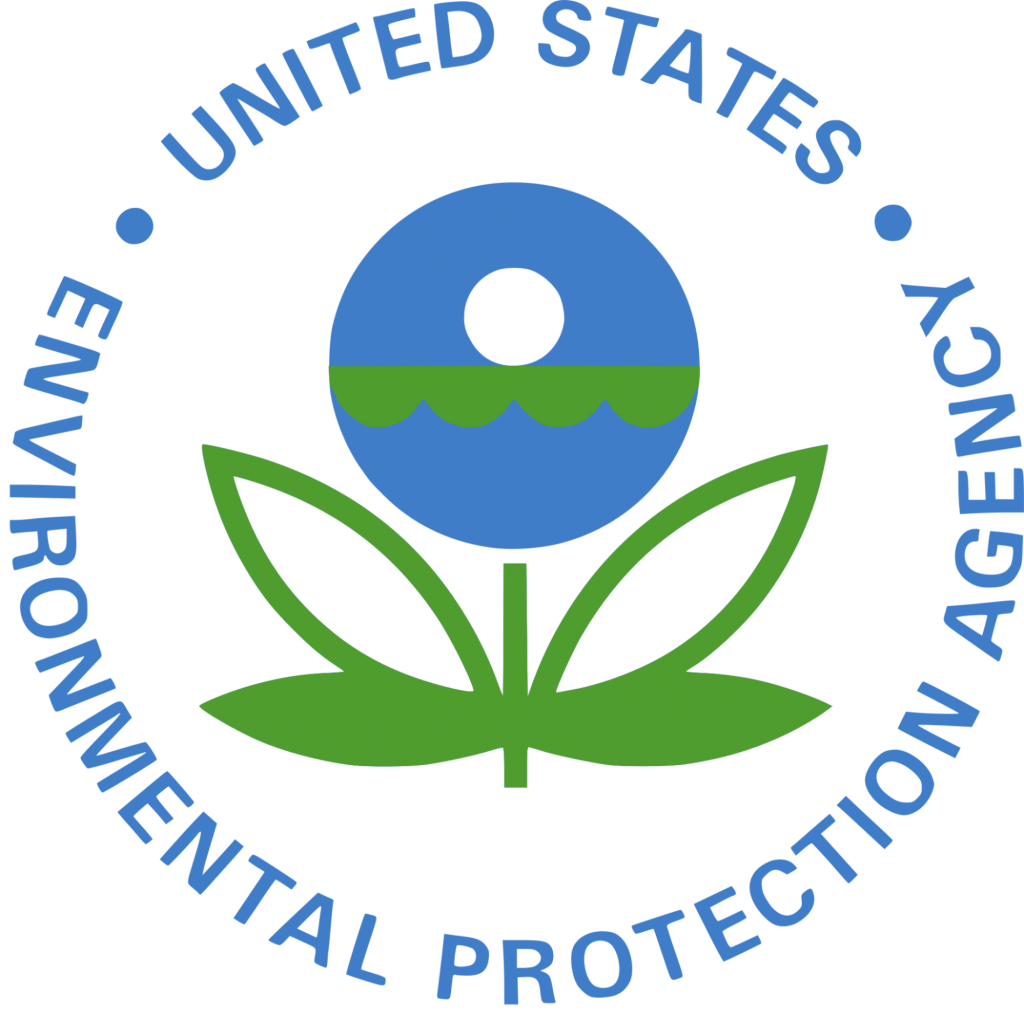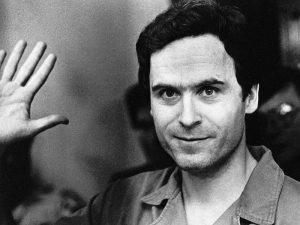As our society continues to grow and increase in population, more and more people use the earth’s resources. The use of these resources affects the land, water, air, and even human life. Taking advantage of these resources can lead to negative effects on one’s health or on the condition of our environment. Because of this, restrictions are created to sustain the earth and its resources. While concern for the environment has been decades in the making, it was not until 1970 that the environment received its most powerful ally in the creation of the United States Environmental Protection Agency (EPA).
The events that led up to the establishment of the EPA were influenced by the involvement and actions of a series of Presidents. President Theodore Roosevelt was one of the first presidents to recognize the importance of focusing on environmental issues. The four main issues he focused on were: reforestation, topsoil erosion, conservation of resources, and water pollution. President Kennedy was another president to address environmental issues. One of his best decisions was in appointing Stewert L. Udall as Secretary of Interior. Udall worked with Congress to bring investments to National Parks and other recreational areas. This was to promote awareness to the public on conserving the environment. President Johnson and his wife were also involved in environmentalism. Ladybird Johnson was involved in a campaign called “Beautify America,” which sought to clean up the environment. Environmental groups were formed, such as the Environmental Defense Fund and Friends of the Earth. In 1968, there was a law that prevented construction to take place around any system associated with the Grand Canyon. After that, President Johnson established the National Wild and Scenic River System. Finally, President Richard Nixon signed the National Environmental Policy Act (NEPA). These were all contributing steps that resulted in the establishment of the EPA.1

In 1970, President Nixon submitted an Executive Order to create the Environmental Protection Agency. The purpose of this agency was to inform the public with information about the environment and to set regulations in order to protect it. This included the protection of water, air, land, and human life since the environment effects our health as well.2 During the 1960’s, there was great need for environmental regulations; however, there were other agencies that had existed for that purpose. These agencies were not as organized and as consistent in regulating the environment as the EPA.3 The air in major cities in the 1960s became more contaminated as air pollution increased. In 1963, there was an increase in smog in the atmosphere in New York, which caused four hundred people to die from these atmospheric conditions.4 Another environmental incident occurred in California where an oil spill covered four hundred square miles of the Pacific coastline with slime that killed hundred of animals, including many birds.5 These were but two events of many that displayed how the environment was affected by human activity. This led to the formation of the Environmental Protection Agency. However, before the EPA was formed, there were a few agencies that already existed, such as the Environmental Quality Council, established by President Nixon in 1969. This then allowed Congress to pass the Environmental Policy Act of 1969. President Nixon then formed the EPA one year later to take more responsibility over the smaller environmental agencies.6 By 1979, twenty-seven new environmental laws and regulations were formed from the EPA, some of which included the Resource Recovery Act, and the Clean Air and Clean Water Acts.7

The Environmental Protection Agency is separated into ten regions in the United States, each of which is responsible for environmental oversight in three to five states. The purpose of this is so that each region is able to supervise individual states to make sure regulations and laws are enforced. In some cases, the EPA has been sued. Industries would sue the EPA if regulations seemed impossible to meet. Environmentalists sued the EPA as well because they felt the agency was making slow progress in environmental sustainability. The EPA enforced “Clean Up” regulations, where polluting industries would be required to clean up or reduce the pollution they caused in productions. For example, Love Canal in New York was a target for clean up regulations. A chemical company was responsible for restoring and cleaning Love Canal, since it had contaminated the canal with waste and other chemicals. New York had declared this incident as a health emergency in 1976. The intentions of these regulations was not only to keep water clean, but to protect people from contamination.8 A goal of the Environmental Protection Agency was to inform the public about the environment and how their everyday lifestyles affect the earth. The EPA in the 1990’s changed from focusing on environmental regulations and laws, to figuring out ways to prevent pollution and contamination.9
The Environmental Protection Agency helps to save our environment from the negative impacts of human activity. President Nixon’s choice in establishing the agency was a great idea because if it had not been created, the condition of our environment would have become worse. The EPA has also spread awareness to other countries that do not have environmentally-regulated industries on how we must protect our earth for later generations to come.
- D. T. Kuzmiak, “The American Environmental Movement,” The Geographical Journal vol. 157, no. 3 (Nov 1991): 269-271. ↵
- Encyclopedia of Environmental Ethics and Philosophy, 2009, s.v. “U. S. Environmental Protection Agency,” by Robert Collin. ↵
- Encyclopedia of Environmental Ethics and Philosophy, 2009, s.v. “U. S. Environmental Protection Agency,” by Robert Collin. ↵
- Lily Rothman, “Here’s Why the Environmental Protection Agency Was Created,” Time Magazine, April 4, 2017. ↵
- Lily Rothman, “Here’s Why the Environmental Protection Agency Was Created,” Time Magazine, April 4, 2017. ↵
- Lily Rothman, “Here’s Why the Environmental Protection Agency Was Created,” Time Magazine, April 4, 2017. ↵
- Encyclopedia of Environmental Ethics and Philosophy, 2009, s.v. “U.S. Environmental Protection Agency,” by Robert Collin. ↵
- Encyclopedia of Environmental Ethics and Philosophy, 2009, s.v. “U.S. Environmental Protection Agency,” by Robert Collin. ↵
- Encyclopedia of Environmental Ethics and Philosophy, 2009, s.v. “U.S. Environmental Protection Agency,” by Robert Collin. ↵



42 comments
Sam Vandenbrink
With all of President Roosevelt’s other accomplishments its crazy to think that he was eco friendly as well, especially in that time period. The agency seems to have gone from more of a reaction company, to a company who prepares us to be ready for natural disasters or just human mistakes that will effect the society/nature. Great article, good topic.
Alexandria Martinez
What a very informative article, there were many facts that I didn’t know before such as all of the presidents involved in furthering our environmental protection. The EPA was a good idea that Roosevelt led the charge in. The EPA has helped our environment a lot however, much more can be done still and this article is a great way to bring awareness to some of the environmental issues we’ve had in the past and even still have today.
Edith De Loera
As human beings we have a ton of responsibilities, and we often forget our most important task: protect the environment. Many people do not understand that our resources are not infinite. Without the EPA, who knows what our quality of life would be like. It is a shame that we do not have further support from our country’s top leaders. I only wish that in the future we have more protection agencies to better secure our environment.
Lauryn Hyde
This article is a great way to bring awareness to environmental issues that the world is still facing today. I find it interesting that it was only about 50 years ago when the government started to take action and implement acts and regulations to help protect the planet. The environmental issues discussed are still relevant today with pollution still being a major concern for the earth.
Manuel Aguilera
Considering that today Presidential elections take into account their standings when it comes to environmental awareness, I am surprised that the EPA was not formed sooner than 1970. I have never been one to concern myself with the environment, but I have also never been one to throw my trash all over the place, I am curious to know if the collective laziness of all those who throw their trash in public areas (not trash cans) has just as great an impact on the environment as compared to human deforestation. Also, I do not like that the EPA is consistently blamed for the lack of cleanliness in America, I feel that most American’s are too conceited to actually make themselves conscious of the damage they cause to our environmental society.
Troy Leonard
this article was very informative and interesting. its very important for us to watch how my of the resources we us because it not only effects us but the environment that we live in. it was a great idea that president Nixon came up with the environmental protection agency because it really was informing the public that they need to makes some changes and cause less pollution
Oceane Roux
Thank you so much for this article, I love the topic! Environmental issues are one of the major concerns of our century. The author does a great job showing that it has been a long process, from the moment where these natural disasters (such as the smog in NYC) occurred, to the reaction of the government, people and diverse organizations, who decided what measures should be taken. I wish the author would have talked more in depth about the economic side of the issue, which is one of the major reason why so many people are against the Environmental Protection Agency’s measures.
Aaiyanna Johnson
Such an insightful article, I never would have guessed there were 10 locations nationally across the united states. It’s very much important that there was a conservationist type agency for the united states. We need it now more so than ever. Thanks for such a gripping piece not often understood. Also not taken seriously. This was very informative and well written.
Valeria Hernandez
The article was informative as it offered facts about previous administrations that tried to improve the environment by imposing several laws, however, Marissa Gonzalez writing is repetitive and contradicting. The author provides great facts about different presidents who wished to better the country’s environment by approving multiple protection agencies. Thus I am left wondering what her thesis/ claim or even purpose was.
Cameron Ramirez
This article was very informative and interesting. Without the EPA people and companies would be taking advantage of our great countries land, water, and air. I think it is vital that we take care of what we have because I would like my kids and my grandkids and so forth to be able to take in the beauty of our country.